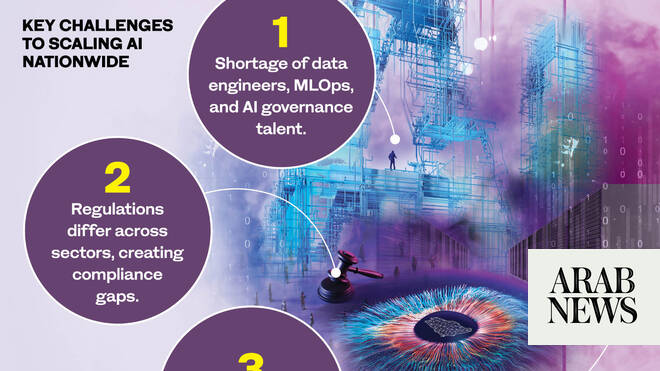Saudi Arabia is rapidly advancing its artificial intelligence ambitions, investing heavily in cloud infrastructure, high-performance computing, and international partnerships as part of its Vision 2030 strategy. The Kingdom is moving beyond strategic announcements, with tangible projects such as AI-driven public service automation and industrial innovation sandboxes already underway. Major global technology companies are deepening their presence through infrastructure investments and academic collaborations, signaling growing confidence in Saudi Arabia's digital roadmap.
Despite these strides, experts highlight persistent challenges: modernizing legacy systems, unifying fragmented data architectures, and cultivating specialized AI talent. Regulatory complexity and operational barriers in sectors like healthcare and finance continue to constrain widespread adoption. Real-world applications in energy, healthcare, and logistics demonstrate the transformative potential of AI, but scaling these successes requires disciplined execution, robust data governance, and a skilled workforce.
Saudi Arabia is balancing the need for data sovereignty with strategic international collaboration, adopting hybrid models that blend local control with global scalability. The Kingdom's Future Skills initiative aims to train thousands of AI specialists, integrating academic learning with practical industry experience. Experts emphasize that Saudi Arabia's unique opportunity lies in fusing global technological excellence with local problem-solving and ethical traditions, potentially positioning it as a values-led leader in artificial intelligence.

 image sourced from original article at
image sourced from original article at 


